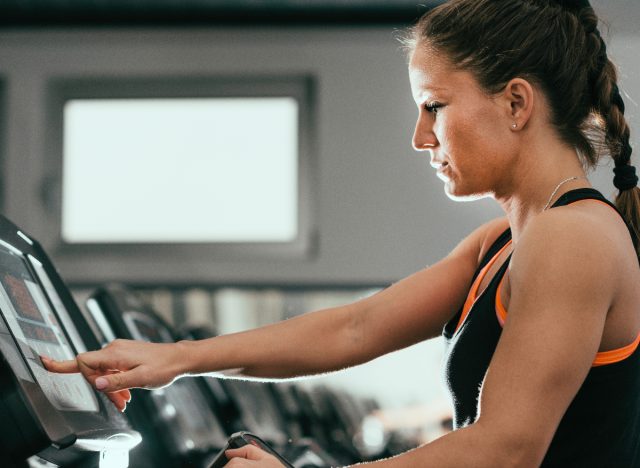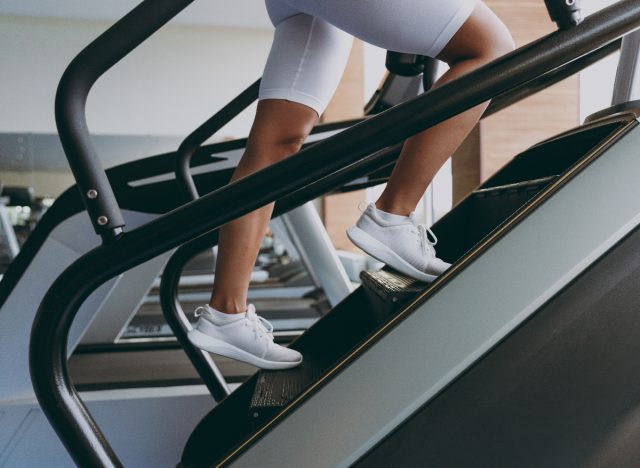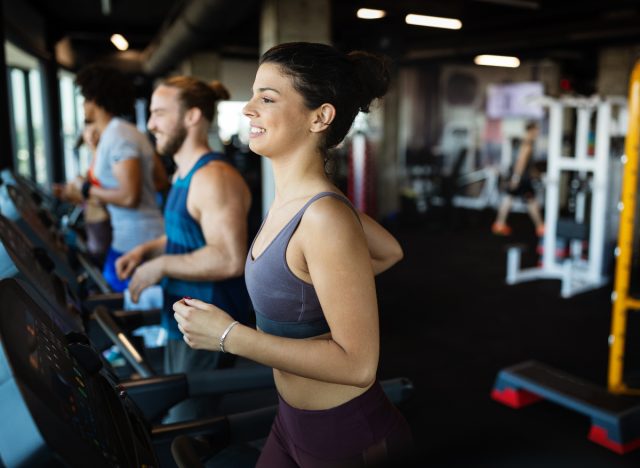Treadmill or Stair Climber: Which Is More Effective for Weight Loss?

You've set your sights on shedding extra pounds and revving up your metabolism to maximize calorie burn. With your strength training regimen already mapped out, the next hurdle to tackle is deciding on the optimal cardio machine for your sweat sessions. As you step into the gym, you're likely faced with the classic dilemma: treadmill or stair climber—which is more effective for weight loss? These two stalwarts of the gym offer distinct advantages and workout styles, each contributing to your weight-loss journey in its own way.
In this breakdown, I've meticulously examined the efficacy of both treadmills and stair climber machines for weight loss, delving into the unique benefits of treadmill workouts and the advantages of stair climber training.
Treadmill: A Versatile Calorie-Burning Powerhouse

On the one hand, with options for walking, jogging, running, and incline training, treadmills offer versatility in workout intensity and variation. Running or jogging on a treadmill typically burns more calories per hour than stair climber workouts due to higher intensity workouts and the engagement of multiple muscle groups. You can even toss on a weighted vest to increase the intensity further for walking, jogging, or incline-based sessions.
One consideration—especially if you have a history of subpar joint health—is that treadmills are higher-impact as your feet repeatedly hit the surface and not as forgiving as soft ground.
Treadmill Workouts for Weight Loss:

1. Interval Training
Alternate between periods of high-intensity sprinting and recovery periods of walking or jogging. For example, sprint at maximum effort for 30 seconds, then recover by walking or jogging for one to two minutes. Repeat this cycle for 20 to 30 minutes.
2. Incline Intervals
Increase the incline on the treadmill to simulate hill climbing. Start with a moderate incline and walk or jog for one to two minutes, then increase the incline to a challenging level and maintain a brisk pace for one to two minutes. Continue alternating between moderate and high inclines for 20 to 30 minutes.
3. Pyramid Workout
Begin with a five-minute warm-up at a comfortable pace. Then, increase the speed every minute for five minutes, reaching your maximum sustainable speed. Maintain this speed for one to two minutes, then gradually decrease the speed every minute for five minutes. Finish with a five-minute cool-down at a comfortable pace.
4. Long-distance Run
Set a goal distance (e.g., 3 miles) and maintain a steady pace throughout the workout. Start with a five-minute warm-up, then run consistently for the specified distance. If needed, take short walking breaks to recover, but aim to complete the distance without stopping.
5. Hill Repeats
Increase the incline to a challenging level, and run or walk uphill for a set duration (e.g., one minute). Recover by reducing the incline and jogging or walking downhill for the same duration. Repeat this cycle for 20 to 30 minutes, adjusting the speed and incline as needed.
Stair Climber: The Stepping Stone to Weight-Loss Success

On the other hand, stair climber machines offer a unique challenge by simulating the act of stair climbing, which is an excellent way to engage the lower body and torch calories. The rhythmic motion of climbing stairs provides an effective cardiovascular workout and targets key muscle groups such as the glutes, quadriceps, and calves.
Stair climber workouts are particularly beneficial for individuals looking to strengthen their lower body and improve endurance without putting excessive strain on their joints. Plus, many stair climber machines come equipped with adjustable resistance settings, allowing users to tailor their workouts to their fitness levels and goals.
Stair Climber Workouts for Weight Loss:

1. Interval Training
Alternate between periods of high-intensity climbing and recovery. Climb at a moderate pace for two minutes, then increase the resistance and climb at maximum effort for one minute. Repeat this cycle for 20 to 30 minutes.
2. Reverse Climbing
Climbing backward engages different muscle groups and adds variety to your workout. Start with a moderate resistance level and climb backward for three to five minutes, then switch to forward climbing for three to five minutes. Continue alternating between forward and reverse climbing for the duration of your workout.
3. Hill Climbing
Increase the resistance level to simulate climbing uphill. Begin with a moderate resistance, and climb steadily for five minutes. Then, gradually increase the resistance every minute until you reach a challenging level. Maintain this resistance for five to 10 minutes before gradually decreasing it back to the starting level.
4. Cross-training
Combine climbing with upper-body exercises to increase calorie burn and engage more muscles. Incorporate intervals of arm movements, such as pushing and pulling the handles while climbing. For example, climb at a moderate pace for two minutes while pushing the handles forward, then climb at a faster pace while pulling the handles toward you for one minute. Repeat this cycle for 20 to 30 minutes.
5. Steady-state Climbing
Set a goal time or calorie burn, and maintain a steady pace throughout the workout. Start with a five-minute warm-up at a comfortable resistance level, then increase the resistance slightly and climb at a consistent pace for 20 to 60 minutes, depending on your fitness level and goals. Finish with a five-minute cool-down at a lower resistance level.
Choosing the Right Machine for Your Weight-loss Goals:

Now, let's address the dilemma: treadmill or stair climber—which is more effective for weight loss? If you want to slim down, the most effective machine is ultimately the one you enjoy using consistently. While treadmills may have an edge in calorie burning due to their higher-intensity workouts, stair climber machines provide a unique challenge that can help break through plateaus and keep your workouts engaging.
Incorporating variety into your routine by alternating between the treadmill, stair climber, and other forms of exercise can help prevent boredom and keep your workouts effective for achieving weight-loss goals.









